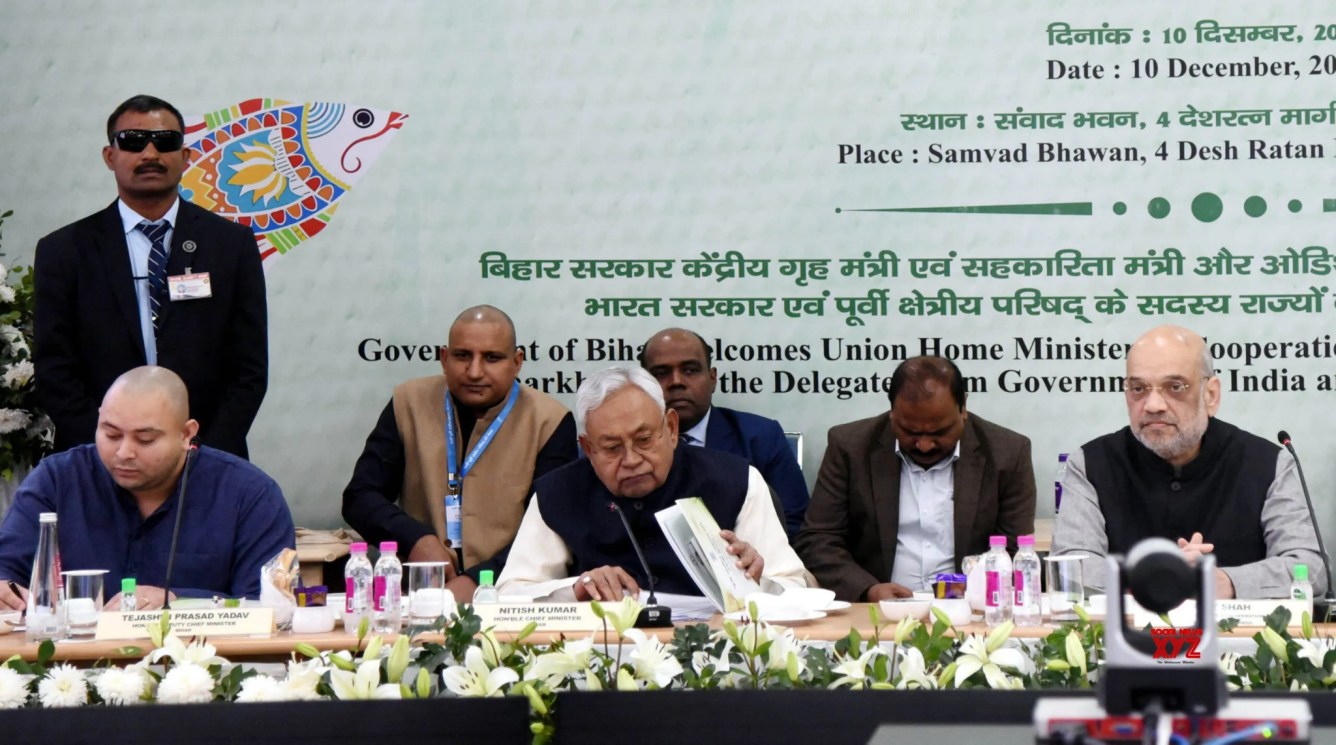Description

Copyright infringement not intended
Picture Courtesy: www.socialnews.xyz
Context: The 26th meeting of the Eastern Zonal Council chaired by the Union Home Minister in Patna, Bihar.
Details
Regional Significance
- The Union Home Minister acknowledged the eastern region's historical and cultural significance, considering it as the cultural capital of the country.
- The region has been a centre for major educational institutions since ancient times.
State Presentations
- All four states – Bihar, Jharkhand, West Bengal, and Odisha – made presentations showcasing good practices implemented in their respective states.
- These practices are expected to serve as inspiration for other states to adopt positive steps.
Industrial Development and Contributions
- The Home Minister highlighted the eastern region's pivotal role in laying the foundation for the industrial development of the entire country.
- Patriots from the eastern region were acknowledged for their significant contributions to the country's redevelopment before and after independence.
Resource Rich
- The eastern states of Bihar, Odisha, Jharkhand, and West Bengal were recognized for their rich abundance of mineral resources and water.
- These states play a crucial role in providing essential mineral resources for the entire country.

Cooperative Federalism
- The Union Home Minister emphasized the Prime Minister's vision of strengthening the spirit of cooperative federalism.
- The increase in the number of Zonal Council meetings over the last 9 years was cited as evidence of the success of the cooperative federalism approach.
Resolution of Issues
- A total of 1157 issues were reported to be resolved in the meetings of the Zonal Councils.
- The Home Minister encouraged a liberal approach to resolving matters during the meetings and emphasized avoiding political differences.
National Importance Issues
- The Zonal Council meetings included discussions on matters of national importance, such as malnutrition among children, reducing school dropout rates, and the operationalization of Fast Track Special Courts.
Infrastructure Projects
- Progress on infrastructure projects, including the Hajipur-Sugauli new railway line and the Nabadwipghat-Nabadwipdham New Railway Project in West Bengal, was discussed.
- The completion of land acquisition for these projects was highlighted.
Caste-Based Survey
- Regarding the caste-based survey conducted in Bihar, the Home and Cooperation Minister clarified that the Central government had no intention of creating hurdles.
- Any issues related to the caste-based survey were expected to be resolved by the state government.
|
Zonal Councils of India
●Zonal Councils are advisory bodies established by the States Reorganization Act 1956.
●They aim to promote cooperation and coordination among states and between the central government and the states in various areas of common interest.
●These councils are instrumental in fostering cooperative federalism, which is the essence of India's federal structure.
●The Union Home Minister is the common chairman of all Zonal Councils.
●Each Council consists of the Chief Ministers and two other Ministers nominated by each of the States included in the Zone.
●The Chief Minister of the State where the Council is meeting serves as the Vice-Chairman.
●Functions:
○Discussing any matter of common interest in the field of economic and social planning between the Centre and States.
○Resolving inter-state disputes and promoting cooperation among states.
○Advising the Central Government and the Governments of the States concerned on any matter relating to the States included in the Zone.
○Considering and recommending the creation of common regional institutions for research, training, and development.
|
Conclusion
- The meeting focused on recognizing the eastern region's cultural and historical significance, promoting cooperative federalism, resolving regional issues, and discussing matters of national importance through the Zonal Council meetings. The emphasis was on collaboration, sharing best practices, and addressing challenges for the overall development of the region and the country.

Must Read Articles:
Zonal Council Meeting: https://www.iasgyan.in/daily-current-affairs/western-zonal-council-meeting
Zonal Council: https://www.iasgyan.in/daily-current-affairs/zonal-council
|
PRACTICE QUESTION
Q. How do Zonal Councils contribute to the effective coordination and cooperative federalism in India, and what specific roles do they play in addressing regional issues and promoting inter-state collaboration?
|









